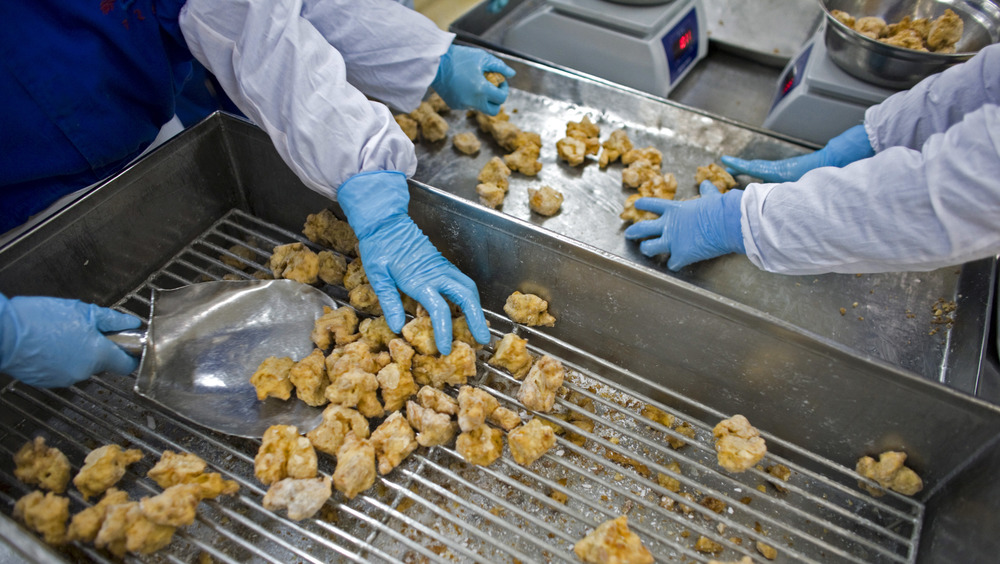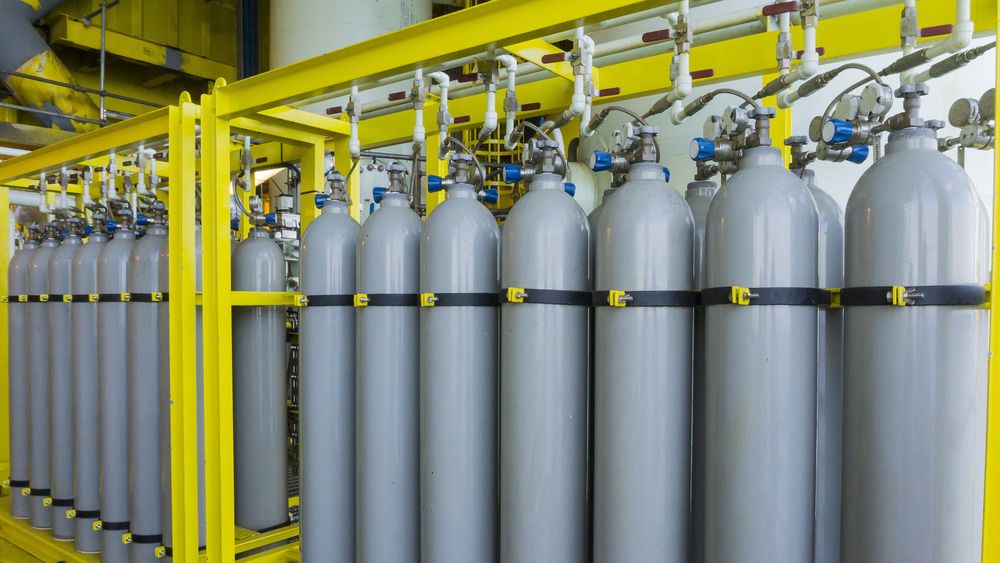Inside The Tragic Accident At A Georgia Food Processing Plant
A nitrogen leak on Jan. 28 at a chicken processing plant in Gainesville, Georgia killed six people and injured several others, including firefighters who responded to the scene (via CNN). Fire crews responded to reports of burns at the Prime Pak Foods facility on the morning of the 28th. The cause of the leak is still under investigation, but officials suspect a nitrogen line ruptured. Poultry processors typically keep liquid nitrogen for their refrigeration systems, according to FOX 23 News. The Prime Pak facility processes raw chicken into chicken fingers and cuts for restaurants and food-service companies.
Five workers died at the plant, and a sixth was pronounced dead in the emergency room. At least 130 workers were evacuated from the plant, some requiring medical assistance. At least 12 people were hospitalized, and three were in critical condition. Four of those taken to the hospital were firefighters. All of the people injured in the accident suffered respiratory problems.
Among those who died were Prime Pak supervisors, managers, and maintenance workers, according to the CNN report. "Every team member is equally important to us and our hearts go out to their families and communities who have suffered such a devastating loss," the vice president of human resources for the company said.
The Prime Pak incident only adds to a tragic year at meat and poultry processors in the United States. According to the Midwest Center for Investigative Reporting, at least 240 workers at meat-processing plants have died from COVID-19.
Oxygen deprivation due to nitrogen leaks happens too often in industrial settings
Nitrogen is not a dangerous chemical in most situations. In fact, it makes up 78 percent of the air we breathe. But coming into contact with liquid nitrogen can cause severe frostbite that affects the skin like a burn (via Purdue University). Liquid nitrogen quickly changes to gas at normal temperatures, and the victims of the Prime Pak Foods accident may have been asphyxiated by the leaking nitrogen gas. People caught in an enclosed space with too much nitrogen wouldn't be able to smell or otherwise notice it, but they wouldn't have enough oxygen to breathe (via CSB).
A study of nitrogen asphyxiation incidents at industrial sites in the United States counted 85 separate incidents from 1992 to 2002, killing 80 people (via YouTube). "Lives continue to be lost because workers are not being made aware of the dangers of oxygen deprivation," CSB board member John Bresland said. All of that said, we should emphasize that the causes of death among the victims of the accident in Gainesville haven't been confirmed and reported yet.

